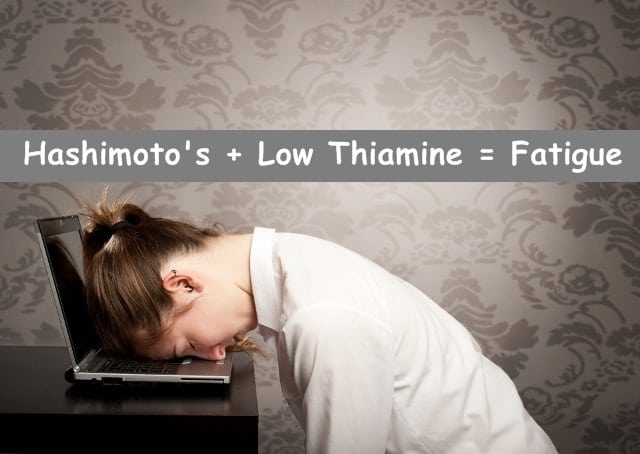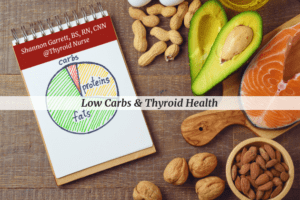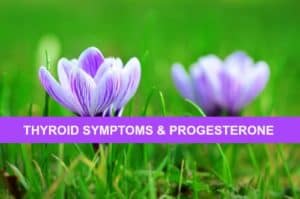
Here’s one myth I need to dispel: Despite what the public-at-large may believe, people with Hashimoto’s aren’t faking their fatigue. Hashimoto’s thyroid fatigue is real, and it is debilitating.
Hashimoto’s Thyroid FatigueIf you have Hashimoto’s (or any other autoimmune condition) you have probably experienced chronic fatigue and the frustration and embarrassment that often goes along with it. I’ve been there! I had many days, years actually, trying to cope with the inability to take a simple walk, go shopping, clean the house, or do basic easy exercise. So, what is your level of fatigue on a scale from 1 to 10? Before you buy into the notion that you need to raise your thyroid dose, I want you to know there may be something else going on that’s making you feel so tired all the time. Research Study ReviewIn the study previously noted, patients who were experiencing fatigue even though their thyroid levels were optimal, researchers treated them with thiamine, also known as vitamin B1. Patients with Hashimoto’s were given 600 mg per day (or 100 mg/mL) every 4 days by IV over a period of 3 months. Fatigue was assessed by using the Fatigue Severity Scale, and they measured thiamine levels in red blood cells before & after thiamine therapy. The researchers based their decision to treat these patients with thiamine on a previous study where thiamine was used in patients with inflammatory bowel disease (IBD) who also experienced fatigue, and they wanted to find out if the same association (thiamine deficiency) might be related to chronic fatigue in Hashimoto’s patients. Patients in the study reported the addition of thiamine resulted in partial or complete improvement in their symptoms of fatigue within a few days. Overall, the researchers found that even mild thiamine deficiency in people with underlying autoimmune and inflammatory conditions linked to a thiamine deficiency. The reason Hashimoto’s patients may be deficient in thiamine is related to the underlying inflammation which interferes with cellular function and transport of thiamine and enzyme activity. The researchers concluded that large quantities of thiamine led to improving symptoms related to chronic fatigue in patients with Hashimoto’s.
Thiamine is found in certain foods, however, many of us with Hashimoto’s are deficient due to issues related to absorption and inflammation issues. In addition, many of the foods rich in thiamine actually need to be avoided for a variety of reasons. For example, the most common sources of thiamine are found in: – Dried milk Source: National Library of Medicine, 2013). So, what is a Hashimoto’s patient to do? Supplementing is the logical choice, given so many of the foods rich in thiamine are avoided and for good reason. Dried milk (dairy), eggs, legumes, nuts and seeds, and whole grains cause gut issues and inflammation for most people with an autoimmune condition, including Hashimoto’s. I’m a proponent of supplementing because you get a quantified dose (remember in the study, researchers administered 600 mg of thiamine per day for fatigue).
Introducing Ultra B-Complex with PQQPatients with Hashimoto’s should only use supplements that are hypoallergenic because Hashimoto’s and autoimmune conditions in general usually involve sensitivities to ingredients like soy, dairy, corn, eggs, and fillers that irritate the GI tract often used by supplement manufacturers such as magnesium stearate.This product is an excellent solution for fatigue. It combines B-complex vitamins with PQQ for unique support of mitochondrial bioenergetics and function.The mitochondria are the powerhouse…the workhorse inside each cell.Pure Encapsulations is a product I use and trust and it’s hypoallergenic – it also contains all the primary intredients needed to help with Hashimoto’s fatigue:? Thiamine and niacin support healthy neuron cell longevity, neuronal membrane function, and impulse conduction*? L-5-MTHF, methylcobalamin, and vitamin B6 support neuronal health as methylation cofactors in myelin and neurotransmitter biosynthesis*? PQQ is a novel B vitamin-like cofactor that encourages mitochondrial biogenesis*? Alpha lipoic acid promotes mitochondrial function, neuron membrane integrity, and antioxidant protection*? Luteolin maintains healthy macrophage activity and gene expression of the nervous system* |
|
READ NEXT: Coffee & Adrenal FatigueReferences:
|




